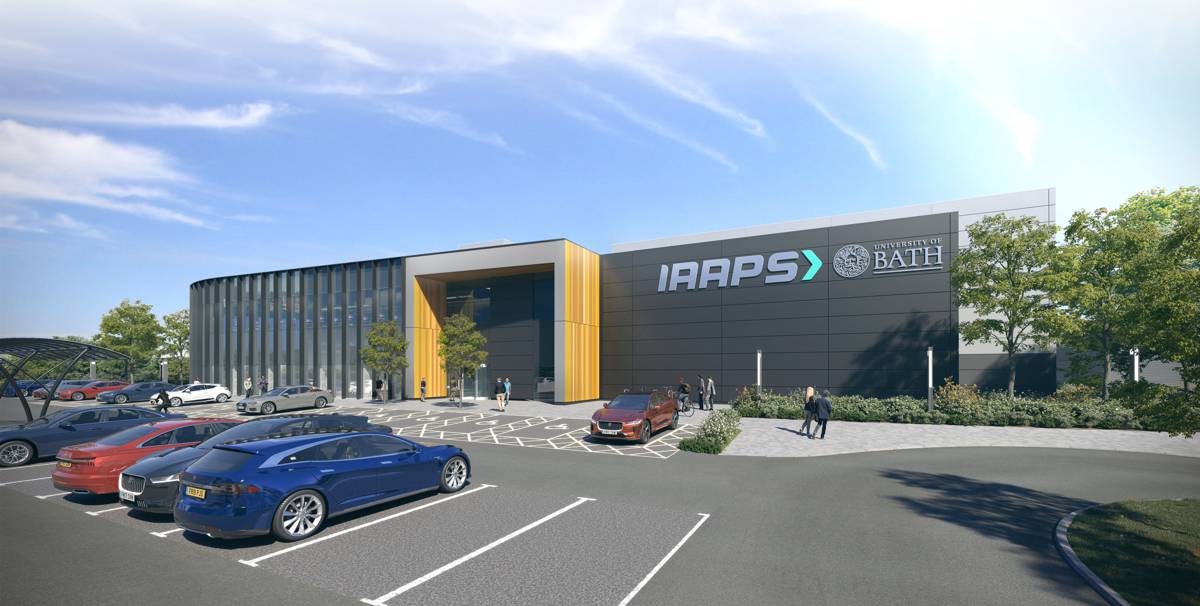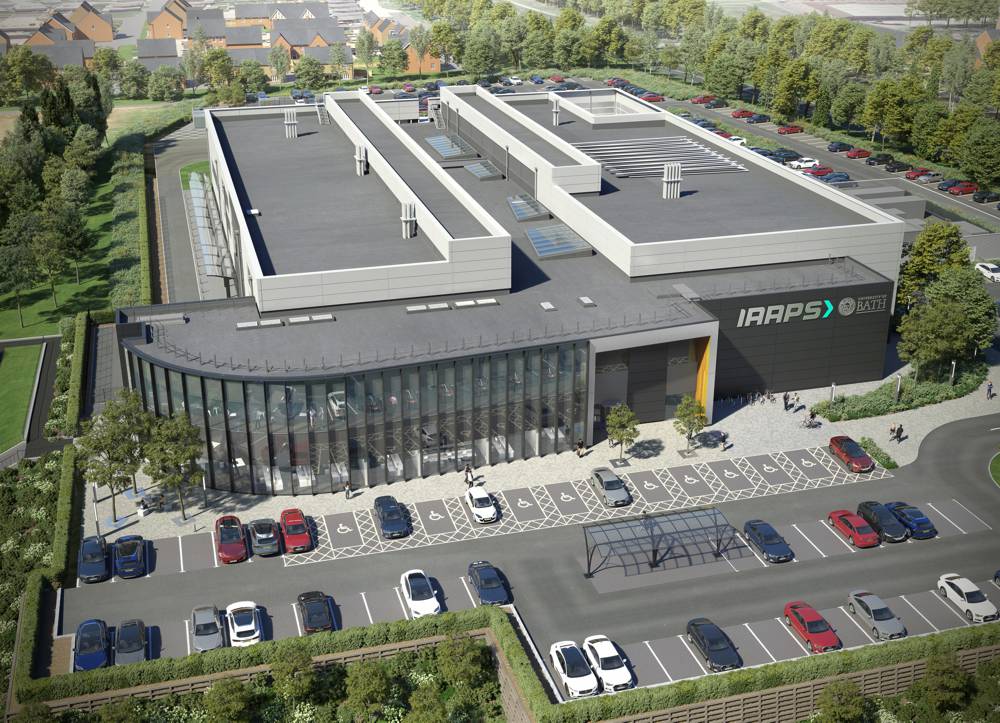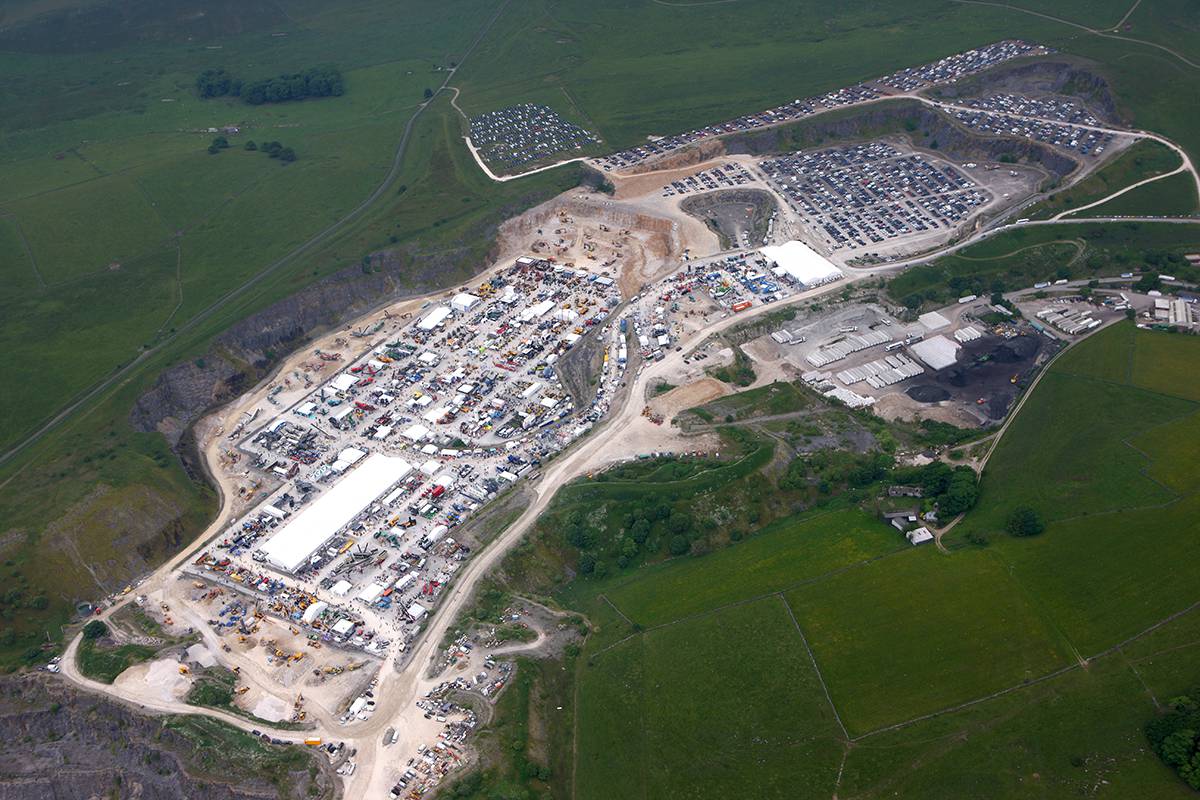A new £70m Automotive Powertrain Research Centre is to be built in the UK
A new £70 million research and development centre is to be established in the UK with the ambition of becoming one of the leading independent facilities of its type in the world.
Led by The University of Bath, the Institute for Advanced Automotive Propulsion Systems (IAAPS) is designed to both accelerate the pace of innovation across companies of all sizes and to increase the supply of engineers with the skills needed to develop the next generation of clean vehicle powertrains.
“While the breadth and depth of resources and expertise will immediately place IAAPS within the world’s top independent powertrain research facilities, the most exciting aspect is that we are starting with a clean sheet of paper,” explains Professor Gary Hawley, Dean of the Faculty of Engineering & Design at the University of Bath. “We began by plotting the technology roadmap required for the development of zero emissions road transport and planned IAAPS to help accelerate that journey.”
That means recognising not just that the technologies are changing faster than ever before – from pure petrol and diesel to electrified, electric, hydrogen and alternative fuels – but that to facilitate this rapid transition, the industry needs new areas of expertise, new development tools, more skills and new ways of facilitating collaboration and innovation.
“IAAPS will focus as much on the ‘how’ as on the ‘what’” continues Prof. Hawley. “That includes the development of new development processes and simulation techniques, education in new areas of technology and encouraging collaboration between innovators and those who can help realise their ideas.”
Expertise will be drawn from the university’s team of more than 40 academics who are active in relevant areas of research, alongside collaborations with vehicle manufacturers, Tier 1 technology suppliers and specialist innovation businesses. As an institute of the University, IAAPS cuts across traditional research boundaries, allowing Engineering, Mathematics, Chemistry, Psychology and other relevant disciplines to work together to find the best solutions
The University of Bath is already recognised as one of the UK’s leading centres of expertise in next-generation automotive propulsion technologies, with commercial research programmes across a wide range of fields. In 2015 the Faculty of Engineering was appointed to lead the Thermal Propulsion Systems – Systems Efficiency spoke of the UK government’s Advanced Propulsion Centre, more recently providing insight and expertise for the UK Automotive Council’s Automotive Technology Roadmap.

Facilities
Based at the Bristol and Bath Science Park, IAAPS will provide 11,300 m2 of R&D facilities, education resources and research cells. Alongside state-of-the-art engine and chassis dynamometers and laboratories for combustion research, it includes a substantial investment in systems for the development and testing of electrification technologies including battery management and energy storage systems. IAAPS will be one of the first commercially available facilities to include cells designed for the development and testing of high-voltage battery packs, supercapacitors, new cell designs and other high-energy electrical storage technologies.
Equally important is the focus on new generations of design and development tools. “The requirement for so many new technologies places tremendous pressure on timescales, resources and budgets, so the development of new tools and techniques is a vital component of product innovation,” states IAAPS programme director Gavin Edwards, who sees three areas where progress is needed.
“First, we must accelerate the development of existing and currently-understood technologies without compromising robustness, durability or cost,” he explains. “Second, we must develop ways to quickly design and validate all-new technologies to the same high standards. And finally, we must develop new tools that facilitate the tightest possible physical and control integration of complementary technologies into a single, highly efficient system that is as simple as possible to manufacture. These new design and development techniques will be both physical and virtual, with particular care taken in ensuring seamless correlation between real and virtual worlds. Our goal is to ‘left shift’ the entire powertrain development cycle.”

Economic benefit
Funding for the new Institute comes from The University of Bath (£30m), the UK Government’s Research England (£29m) and the West of England Local Enterprise Partnership (£10m).
Professor Hawley believes IAAPS will be a catalyst for sustainable economic growth, both nationally and in the region. “We are not just about solving the technical challenges,” he says. “IAAPS is also about making businesses stronger; supporting business incubation, accelerating the growth of smaller innovation firms, providing affordable access to skills and resources, facilitating collaboration and much more.”
Independent research by Warwick Economics, the Department of Economics at Warwick University, predicts that IAAPS will stimulate £67 million in additional R&D investment within five years of opening, driving an additional turnover of £800 million within the UK automotive sector and £221 million in additional Gross Value Added for the UK economy, supporting around 1,900 new jobs across the country. IAAPS, which will directly employ around 190 people, expects to stimulate the creation of around 400 high-quality jobs within the region.
IAAPS is expected to open mid 2021.





























